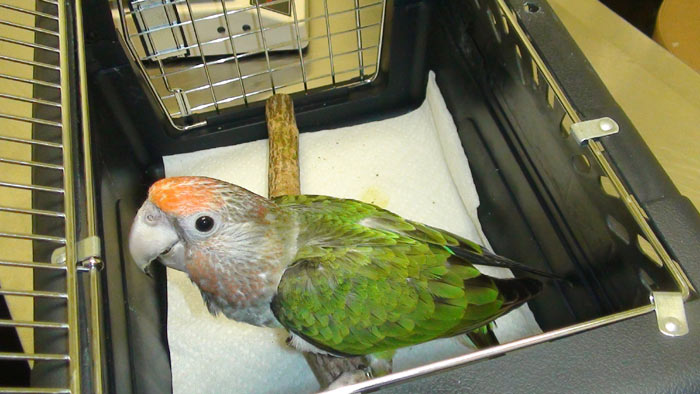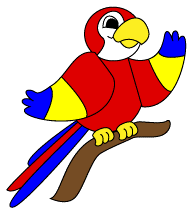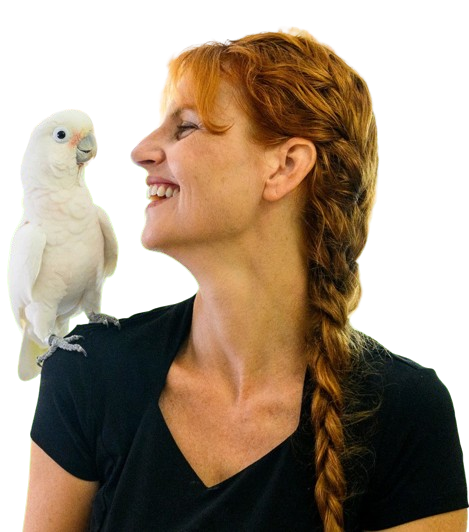
What is the Maximum Age You Can Get a Parrot?
Parrots are extraordinary creatures known for their vibrant plumage, intelligence, and longevity. If you’re considering bringing a parrot into your home, you might wonder about the maximum age at which you can get one. Understanding the implications of adopting a parrot at different life stages can help ensure a successful and fulfilling companionship. In this blog, we’ll explore the factors to consider when adopting a parrot at an older age, the benefits and challenges, and tips for providing the best care for your new feathered friend.
Understanding Parrot Lifespans
Parrots are known for their impressive lifespans, which vary significantly depending on the species. Here are some average lifespans for common parrot species:
- Budgerigars (Budgies): 5-10 years
- Cockatiels: 15-25 years
- African Grey Parrots: 40-60 years
- Amazon Parrots: 40-70 years
- Macaws: 50-80 years
These lifespans mean that many parrot species can outlive their owners, making it crucial to consider long-term care and future plans when adopting a parrot.
Factors to Consider When Adopting an Older Parrot
1. Health and Medical History
When adopting an older parrot, it’s essential to gather as much information as possible about their health and medical history. Older parrots may have existing health conditions that require special care. Ensure you have access to a qualified avian veterinarian who can provide the necessary medical support.
2. Behavioral History
Understanding an older parrot’s behavioral history is vital. Some older parrots may have had multiple owners or experienced trauma, leading to behavioral issues such as aggression or anxiety. Patience and consistent training are key to helping them adjust to their new environment.
3. Diet and Nutrition
Older parrots may have specific dietary needs. Work with your avian veterinarian to develop a balanced diet plan that meets their nutritional requirements. Ensure they receive a variety of fresh fruits, vegetables, and high-quality pellets.
4. Socialization and Bonding
Building a strong bond with an older parrot may take time, especially if they have had negative experiences with previous owners. Spend quality time with your parrot, engaging in activities they enjoy, and providing plenty of mental stimulation.
Benefits of Adopting an Older Parrot
Adopting an older parrot can be a rewarding experience with several benefits:
1. Established Personality
Older parrots have established personalities, making it easier to understand their likes, dislikes, and behaviors. This can help you tailor your care to their specific needs and preferences.
2. Lower Energy Levels
Older parrots generally have lower energy levels compared to younger birds. This can be advantageous if you prefer a calmer, less demanding companion.
3. Lifelong Companionship
Providing a loving home to an older parrot can give them a second chance at a fulfilling life. Many older parrots in need of adoption are looking for stable, caring environments where they can thrive.
Challenges of Adopting an Older Parrot
While adopting an older parrot has its benefits, there are also challenges to be aware of:
1. Health Issues
Older parrots are more prone to health problems such as arthritis, respiratory issues, and organ diseases. Regular veterinary check-ups and a proactive approach to healthcare are essential.
2. Behavioral Challenges
Some older parrots may have developed behavioral issues due to previous experiences. Addressing these challenges requires patience, understanding, and often professional training.
3. Adjustment Period
Older parrots may take longer to adjust to a new home and routine. Consistency, gentle handling, and a stable environment are crucial to helping them feel secure.
Tips for Adopting and Caring for an Older Parrot
1. Create a Comfortable Environment
Provide a spacious, comfortable cage with plenty of perches, toys, and enrichment activities. Ensure the cage is placed in a quiet, secure area where your parrot can feel safe.
2. Offer a Balanced Diet
Consult with your avian veterinarian to develop a diet plan that meets your parrot’s nutritional needs. Include a variety of fresh foods and ensure they have access to clean water at all times.
3. Regular Veterinary Care
Schedule regular check-ups with an avian veterinarian to monitor your parrot’s health and address any issues promptly. Preventive care is crucial for maintaining their well-being.
4. Patience and Positive Reinforcement
Building trust with an older parrot takes time. Use positive reinforcement techniques to encourage desired behaviors and create a bond based on trust and respect.
5. Mental Stimulation
Keep your parrot mentally stimulated with toys, puzzles, and interactive activities. Parrots are intelligent creatures that thrive on mental challenges and engagement.
Conclusion
Adopting an older parrot can be a deeply rewarding experience, offering the opportunity to provide a loving home to a bird in need. While there are challenges associated with caring for older parrots, the benefits of companionship and the joy of seeing them thrive in a new environment are immeasurable. By understanding their unique needs and providing the best care possible, you can enjoy a fulfilling and lasting relationship with your feathered friend. Whether you choose to adopt a young or older parrot, the commitment to their well-being and happiness is the key to a successful and enriching companionship.




